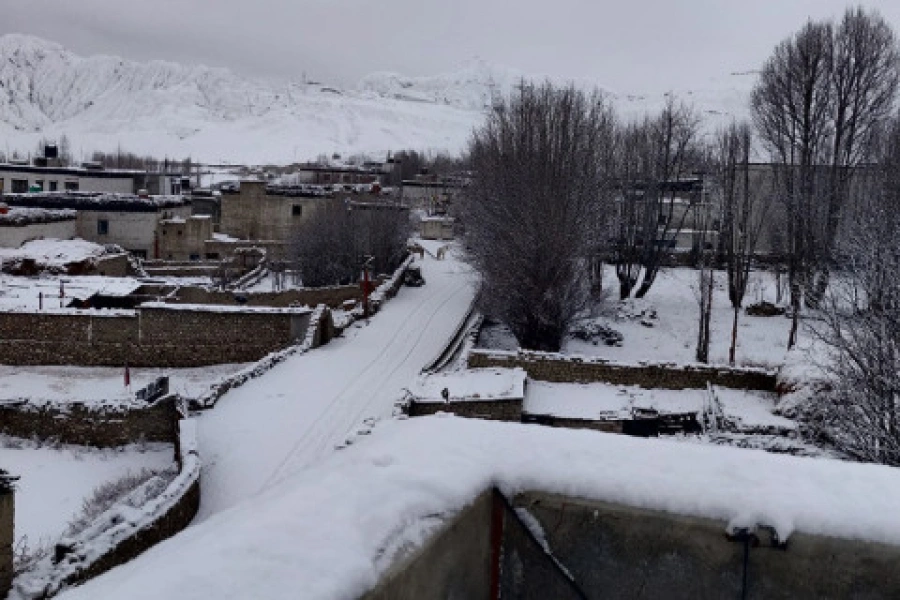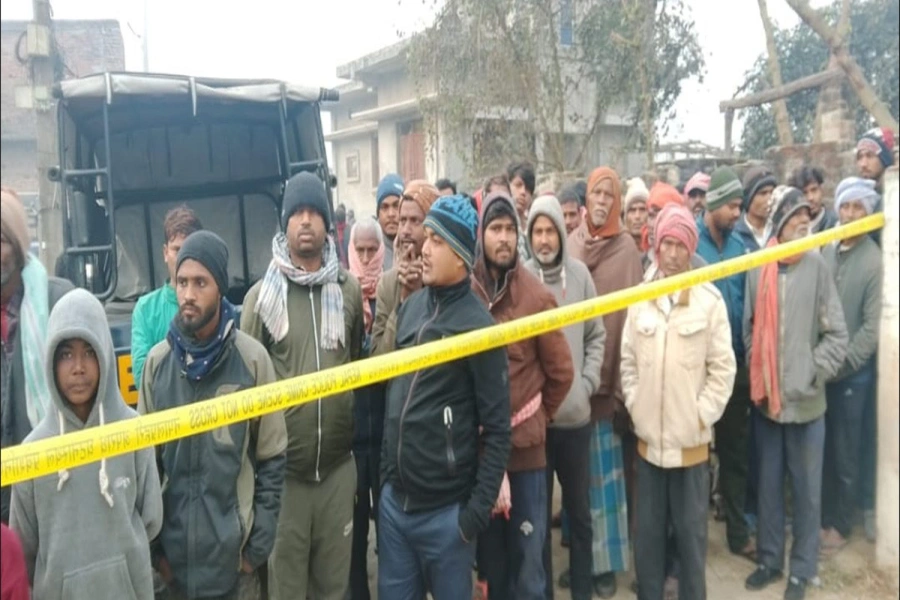More than 200 businesses have already relinquished Thamel
KATHMANDU: When the government announced the ‘Visit Nepal Year 2020’ campaign, BR Balami Shrestha was excited. He owns Nirvana Art Gallery in Thamel, and he increased the collection in his gallery, sensing a possible boom in the business.
The COVID-19 pandemic has destroyed the tourism businesses in Thamel, and the sales at Nirvana Art Gallery is zero. “I opened my gallery some 10 days ago, and the business is zero,” said Shrestha.
The paintings at Nirvana Gallery are valued at more than Rs 10 million. “I am expecting a huge loss. We just want our business to survive the global pandemic,” said Shrestha, who also owns another art gallery in Thamel.
Shrestha has been running the business in a rented shutter for the last three decades. He pays Rs 40,000 a month for the shuttered room. “My sales are zero. But I need to pay rents every month from my savings. If the situation prolongs, there is no other option but to pack up my belongings and leave Thamel,” according to Shrestha.
As of now, over 200 businesses have already left Thamel and the situation is getting worse.
Thamel to host 'New Year Eve Thamel Street Festival' to mark N...
_20231230161525.jpg)
“Monthly rents are sky high, ranging from Rs 40,000 to half a million for a single shutter, and the businesses are not able to bear the liability with zero sales,” Shrestha told Republica.
Although some landlords in the Thamel area have assured a 50 percent waiver on rents, businesses say it is still difficult to operate business. “How can businesses pay even 50 percent of rent when the business is almost zero?” questioned Shrestha.
According to Bhabishwar Sharma, vice president of Thamel Tourism Development Council (TTDC), more than 200 businesses have already left the Thamel area. “These businesses are bankrupt. A business pays an average of Rs 80,000 per month as rent. As tourism has come to a grinding halt, the number of businesses leaving the area will increase in the next few weeks,” Sharma told Republica. He further said that several businesses are on the brink of a complete collapse.
The businesses in Thamel have always been dependent on tourists. According to tourism entrepreneurs, over 90 percent of the customers in Thamel are tourists.
“The pandemic has destroyed tourist towns like Thamel and Pokhara,” said Sharma.
Over 8,000 businesses operate in about 2,000 houses in Thamel. From small eateries, handicraft and souvenirs shops, trekking gear shops, woolen items and clothes to big travel agencies, hotels and restaurants and some of the capital city’s most renowned and expensive pubs and clubs – all of which are largely dependent on tourism.
Thamel is also considered as a pre-base camp for trekkers and mountaineers. Almost every international tourist landing in Kathmandu heads to Thamel before departing to their desired destinations.
In Thamel, big businesses occupying more space have to pay up to Rs 4.5 million. Even a 50 percent relief on rents doesn't work as there are no sales.
But landlords say they are also hit hard by the global pandemic. “I need to pay a monthly EMI to the bank. The living of my family is dependent on the rents we get from businesses,” said a landlord, who is also a member of TTDC.
“It will take a few years for businesses to get back to normal. Everyone is in survival mode right now,” said Sharma.
Restaurants and cafés are operating only to take away services, but they also sense possible bankruptcy in the next few months.
“It has been quite difficult to operate the business. It is hard for the businesses to even survive,” Tejendra Nath Shrestha, owner of a restaurant, told Republica.
The restaurant is transacting only Rs 5,000 to Rs 8,000 a day. “The daily transactions don’t even cover the operational cost of the business. If the pandemic prolongs, the business will collapse.”
There are around 200 restaurants and cafés in Thamel, and only a few are operating.
“Many had started operating this year, on the eve of the ‘Visit Nepal Year 2020’. When the largely awaited tourism year had finally arrived, the hopes on tourism were high, a number of small and big businesses were starting. However, the pandemic crushed all the hopes of these businesses before they could breathe,” said Shrestha, adding that the “worst is yet to come” as the businesses are slowly collapsing.





































